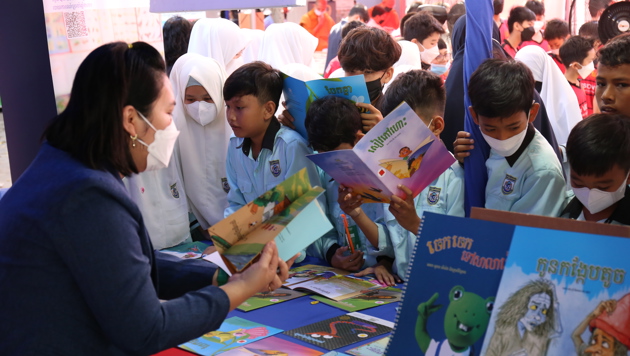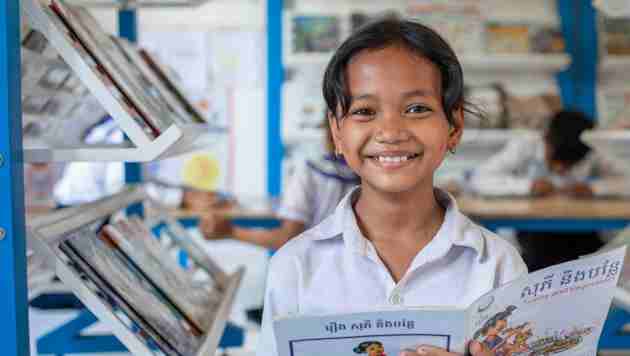Working against racial inequality and poverty, Room to Read South Africa offers a comprehensive Literacy Program that combines home-language classroom instruction with high-functioning libraries. We partner with the Department of Basic Education, schools and communities to make a lasting impact.
Room to Read launched its work in South Africa in 2006 to help more children learn how to read and write in early primary school. To date, Room to Read has worked in five provinces — Eastern Cape, Limpopo, Mpumalanga, KwaZulu-Natal and Gauteng — and published children’s books in eleven of its twelve official languages. The twelfth language is sign language.
The expansiveness of this work has helped Room to Read cultivate a strong, trusted relationship with the Department of Basic Education, as well as several provincial government education departments. In South Africa, we recently garnered additional recognition from the Department of Basic Education after being chosen to lead the government’s most visible national reading program, called Reading Champions, that engaged older youth to support reading and library activities in primary schools.
We are currently implementing components of our Literacy Program in partnership with three provinces: Limpopo, Mpumalanga, and KwaZulu-Natal. Depending on local needs and interest, this work may include providing local educators with the training and resources they need to ensure more students are more effectively learning learn how to read and write.
In some regions, we also equip schools to establish and maintain child-friendly libraries, filled with colorful, local language books developed by local authors and illustrators, in partnership with Room to Read.
The Latest from South Africa

Reading Champions: Scaling Room to Read’s library approach to nurture a strong culture of reading in South Africa

IMC’s annual Trading & Gaming Day for Charity raises funds to support children with foundational literacy skills

International Mother Language Day: Being a part of the story

Setting the course for 2023: Room to Read's 2022 Country Management Conference

Creating a world of lifelong learners
Room to Read updates from across the globe
Become a Monthly Investor
By continuing to use this site you consent to the use of cookies. Find out more.




